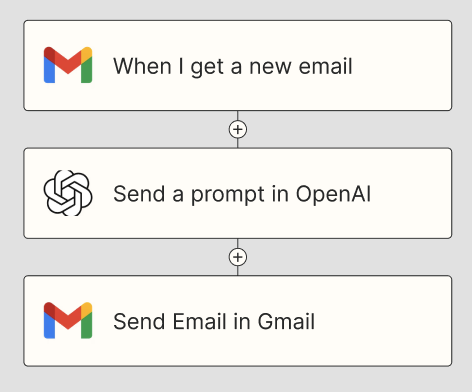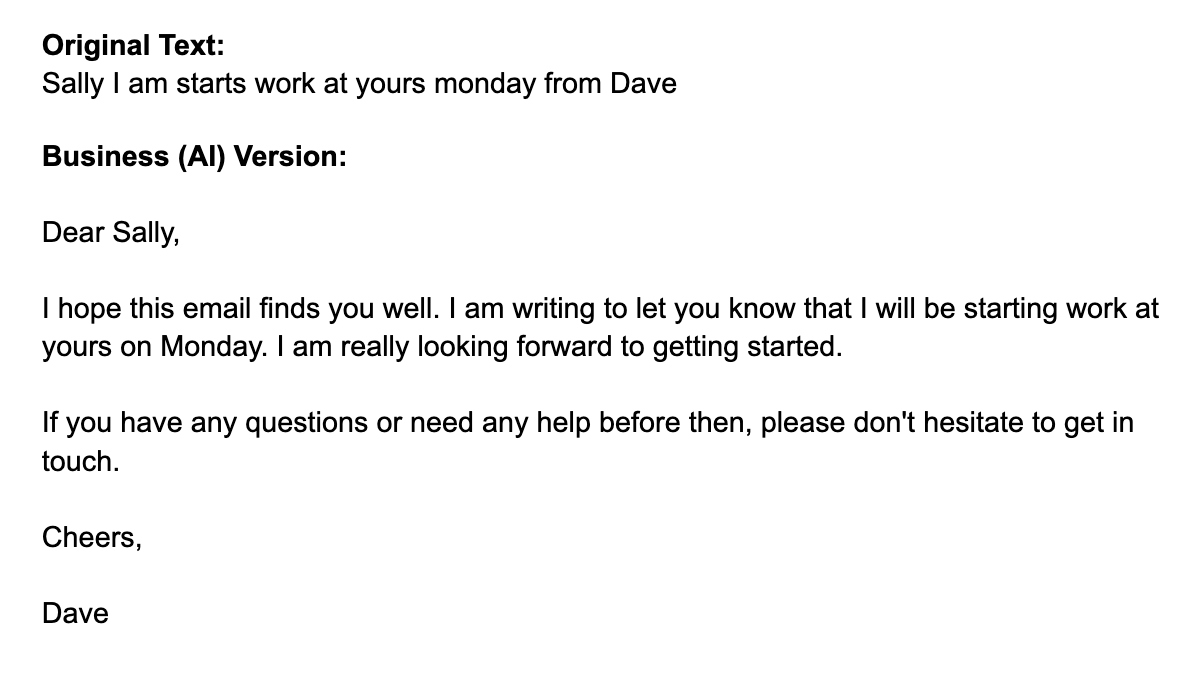When Danny Richman hired a contractor to fix his bathroom leak, he didn't expect to go viral on Twitter just a few months later.
After Whittle fixed the bathroom leak, he went on to install a pool on Richman's property, and the two became fast friends. Richman decided to help Whittle expand his business, a pool installation company, now called Ashridge Pools.
As a tech consultant, Richman helps businesses with their SEO and digital marketing—and, so, could offer his expertise to Ben.
But after taking care of the website and sorting out the SEO, Richman hit a snag. Whittle has a learning difficulty known as dyslexia, and struggles to write grammatically correct, formal emails to his prospective clients.
Then Richman had an idea. What if artificial intelligence (AI) could write Ben's emails for him?
AI: The game changer
Richman was no stranger to GPT-3, a machine learning model developed by OpenAI that generates any type of text. He'd used it before to produce complex Google Sheet formulas by feeding it simple prompts in plain English.
By combining OpenAI's technology with other tools, he's also used it to create charts, formulate color palettes, and classify keyword research for his other clients.
Richman breaks it down: "GPT-3 was trained with data from CommonCrawl, WebText, Wikipedia, and books. So, every time you send it a prompt, it uses the data from these sources as a model to generate a response."
Back when Whittle first began his pool installation business, he'd have to send prospects and clients a range of business emails—from quotes for a project to discussions on materials and to agree upon dates and times.
Concerned that his writing might impact his ability to close deals, he began sending Richman drafts of his client emails, which Richman would edit and send back to him. But as the leads began to pile up, they realized this process wouldn't scale with the business.
Richman knew that GPT-3 could write these emails for Ben so they could skip the back-and-forth of manual editing. But he also wanted to set up a simple interface Ben could use easily—one that connected Gmail to the AI, so Ben could send his business emails back to clients quickly. Not only would this save Ben time when writing his communications, but it would also drastically improve the customer experience.
Richman knew that's where Zapier could help.
"I realized I could set up a process for Ben so that he didn't need me at all. And I thought Zapier would be a really convenient way to set this up, so he could just reply to his customers directly from his Gmail account the moment the AI wrote his message—automatically."
Using Zapier and AI to write quality emails
Richman set up a new Gmail account for Ben, named DannyBot, specifically for this purpose. Now, when a client (or lead) sends Ben an email, he writes up a quick, one-sentence response, which he sends straight to DannyBot from his original Gmail account. The AI then uses Ben's response to create more detailed email copy based on the prompt it was fed.
"The prompt itself is simple," says Richman. "You can say: Generate a business email in UK English that is friendly, but still appropriate for the workplace. Then the Zap uses Ben's original text as the email topic."

The AI then polishes up the grammar and punctuation and transforms it into a business email that's both polite and professional. Once that's done, the Zap sends the finished email back to Ben so he can send it straight to his customer.
The changed copy looks something like this:

"The OpenAI integration on Zapier just makes it really easy because you don't even need to put together the API request," says Richman. "You literally just connect it to your OpenAI account. You put in your prompts and it does all the work for you."
Reaping the literary benefits
With this automated workflow in place, Whittle has seen drastic improvements—both in his own literacy as well as his business.
Richman explains: "Not only does [this polished communication] convey a great impression to the client, but I think that as a result of using AI, Ben recently landed the largest contract he's ever had, which is worth over $200,000 for a big installation project."
Another unexpected benefit is that, over time, Whittle's been using the AI less and less.
"His written English and grammar have improved so much lately just from observing the examples that have come through the app. And so, that's really positive. It's not just solving a problem—he's really learning from it."
What AI could mean for the future
Richman's confident that, in the near future, more people will start using AI to help them with their businesses.
"More and more people are becoming aware of how easy it is to use—that you don't need to hire expensive developers to go and solve these problems for you. It can be used for real-world, simple business applications, even for smaller businesses."
As for GPT-3's current limitations, Richman thinks they won't be around for too long.
"GPT-3 was trained with a big corpus of information, which cuts off at around 2021. So, if you ask it about current, real-world events, it will bluff. But models now exist where if you ask it a question for which it doesn't know the answer, it will write code that goes out onto the web or pulls in API requests from any platform to respond accurately."
This, Richman says, will open up a whole new world of possibilities for individuals and businesses.
